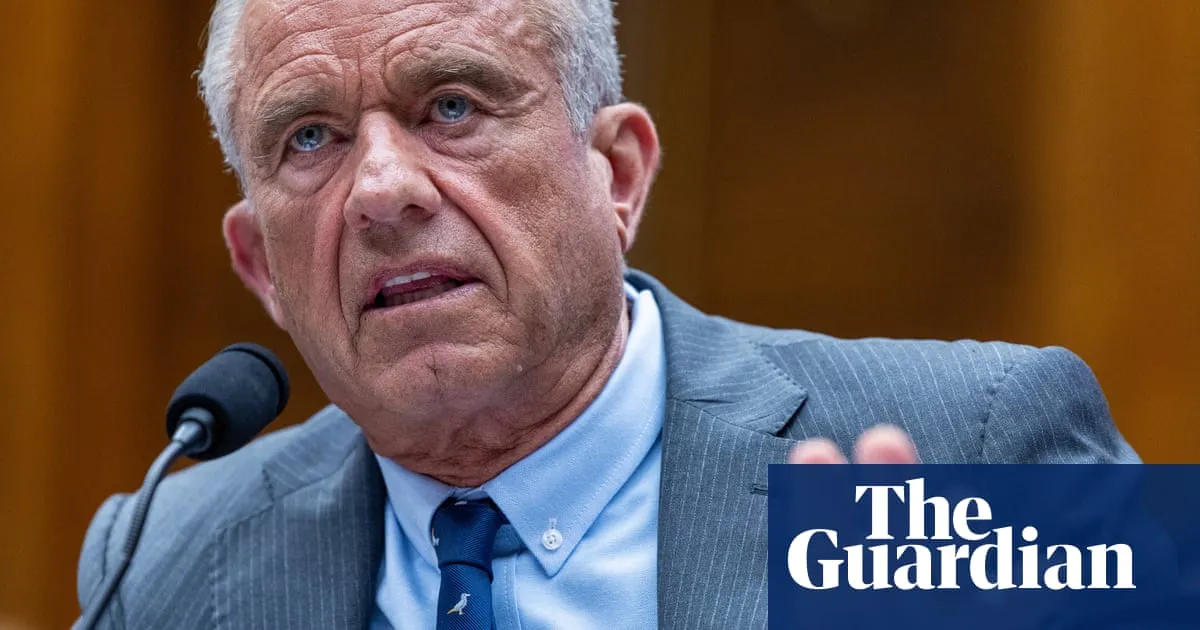
A member of Health Secretary Robert F. Kennedy Jr.’s newly restructured federal vaccine advisory panel has stepped down following a review of conflicts of interest, as confirmed by a spokesperson to The Guardian. Dr. Michael Ross, who had ties to several private healthcare companies, chose to withdraw after an examination of his financial holdings.
This development comes after Kennedy dismissed all 17 members of the Centers for Disease Control and Prevention’s (CDC) Advisory Committee on Immunization Practices (ACIP) in June, citing their numerous conflicts of interest. Ross was one of eight ideologically aligned appointees to the committee, selected by Kennedy, who argued that the previous members were plagued by too many financial entanglements.
“Yesterday, Dr. Michael Ross decided to withdraw from serving on ACIP during the financial holdings review,” a spokesperson from the Department of Health and Human Services (HHS) stated. “The sacrifice to serve on ACIP varies from member to member, and we appreciate Dr. Ross’s willingness to go through this rigorous process.” These comments were made in response to inquiries from The Guardian regarding the conflict of interest disclosures for ACIP's new members.
Despite the Trump administration and Kennedy's efforts to create a conflict of interest tracker specifically for ACIP members, it is noteworthy that Kennedy’s appointees have yet to be included in this tracking system. The HHS spokesperson did not provide a timeline for when new, written conflict of interest disclosures would be made available to the public. Instead, they emphasized that the department has conducted a thorough review of all newly appointed ACIP members for potential conflicts of interest, adhering to federal law, regulations, and departmental policies. Additionally, these members received ethics training before commencing their duties.
The new committee members were required to disclose any conflicts of interest prior to the meeting that took place on Wednesday. However, during this meeting, Committee Chair Dr. Martin Kulldorff and committee member Dr. Robert Malone did not disclose their involvement in vaccine litigation, which has been widely reported. Nurse Vicky Pebsworth mentioned that she had been “asked to read” a statement regarding her ownership of a healthcare stock, clarifying that it fell below the threshold required for reporting to the government ethics office.
The ethics review of the new committee members also became a topic of discussion during Senate testimony on Wednesday. When questioned by Democratic Senator Patty Murray of Washington, Dr. Susan Monarez, the Trump nominee to lead the CDC, expressed uncertainty about whether the members participating in the meeting had completed the necessary ethics review to allow their involvement. Murray pressed Monarez, asking, “If it is known that they have not gone through the ethics process and they issue recommendations, would you accept them as valid?”
Monarez responded firmly, stating, “If they have not gone through an ethics approval process, they shouldn’t be participating in the meetings.” This exchange highlights ongoing concerns regarding ethics and transparency within the newly appointed vaccine advisory panel, emphasizing the importance of integrity in public health recommendations.